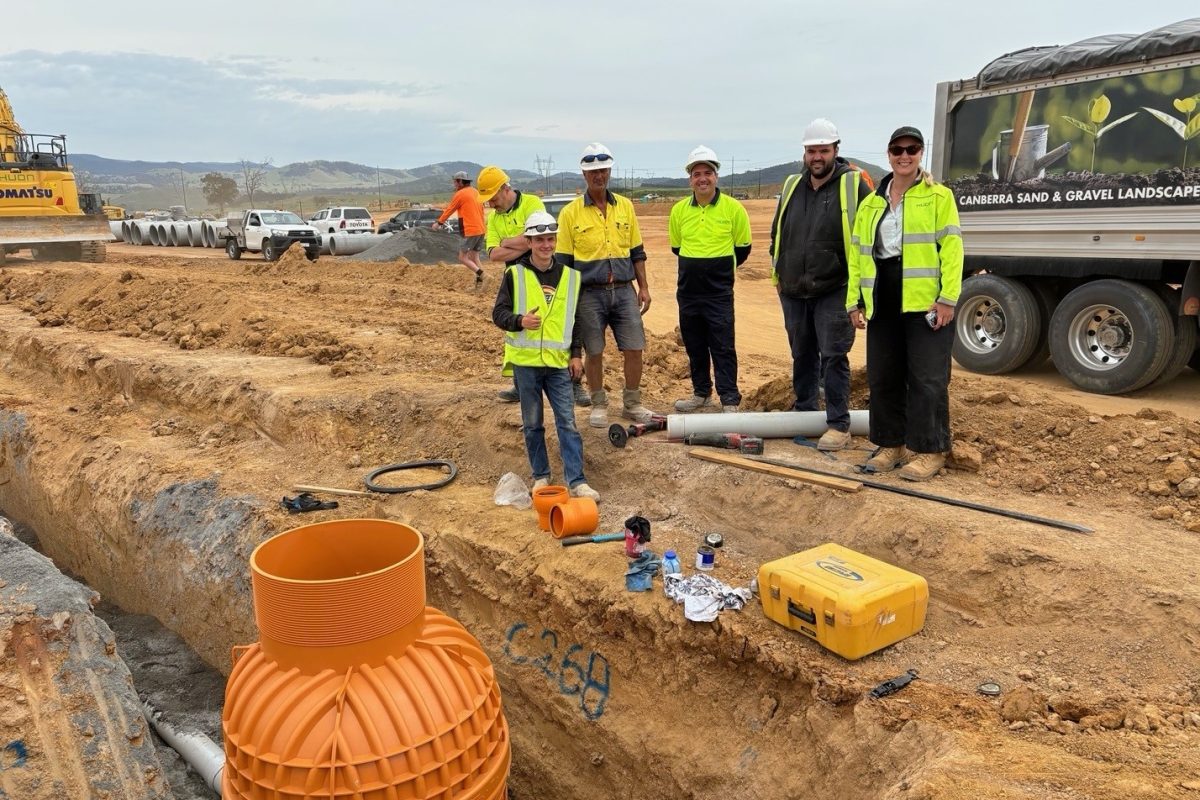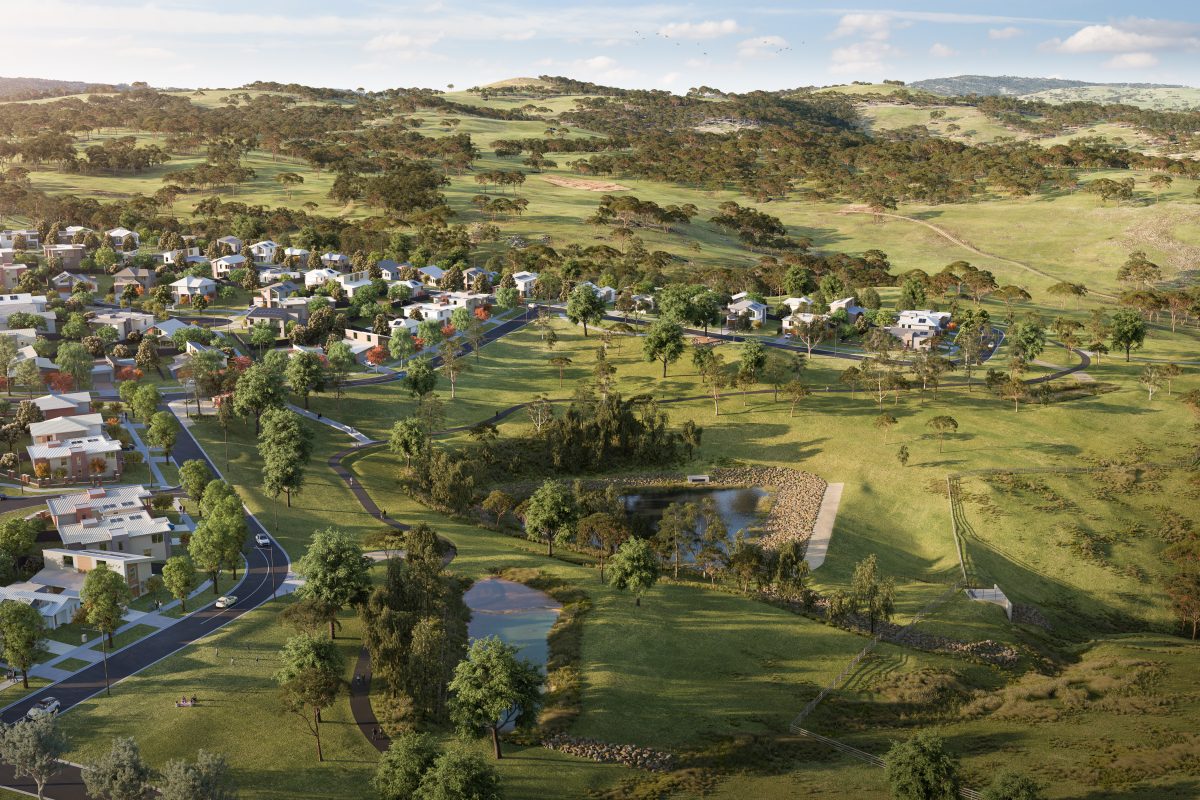Ginninderry trials new eco-friendly element for waste management system
From the start, Ginninderry has aimed to create a sustainable community. We are constantly looking for new ways to raise the bar for best practices in sustainability, design, construction and innovation and as part of recent civil construction, the development team is trialling a new type of sewer maintenance hole. Previously, concrete sewer maintenance holes were installed which tend to crack, leak, and create more CO2 emissions through the delivery of the concrete.
The new sewer maintenance hole designs are made of polypropylene, a flexible material that does not crack and can be recycled, which means a more sustainable and eco-friendly element within the waste management system for Ginninderry.
Other advantages of the polypropylene material include a service life of 100 years, a quicker installation time of 30 minutes (compared with the previous eight hours), they are 100 per cent leak-tight, and safe and easy to maintain. The polypropylene designs can also be lifted by hand and installed without any machinery, making the process easy and efficient for workers on site. In late October, Huon successfully installed three Rehau Awashaft 1000 plastic manholes in under two hours, demonstrating their efficiency and ease of installation. The process involved preparing the base substrate, positioning the base, lifting the increments and lid, and connecting the necessary pipes—all requiring minimal labor and just a small machine for a short duration. The light lightweight materials also enhance safety by reducing manual handling risks, while their durable construction supports long-term sustainability.

“At Ginninderry, we like to push the boundaries of sustainability and innovation to create a community that leads by example. In trialling these new polypropylene sewer maintenance holes, we are not only minimising our environmental impact and enhancing long-term infrastructure resilience, but also creating safer, more efficient work processes. This new approach reflects our promise to build a community that supports a healthier, more sustainable future for generations to come” says Ginninderry’s Development Manager, Robert Dunkley.
By choosing sustainable materials like polypropylene for sewer maintenance holes, which is the first time they have been used in the ACT as a subdivision scale, Ginninderry sets a new standard for eco-friendly infrastructure. This approach not only reduces waste and carbon emissions but also reflects Ginninderry’s commitment to sustainability and its proactive role in creating resilient infrastructure that will support the needs of a growing community. As Ginninderry expands, these innovative solutions will play a crucial role in preserving the natural environment, ensuring that future generations inherit a vibrant, sustainable, and healthy community.



